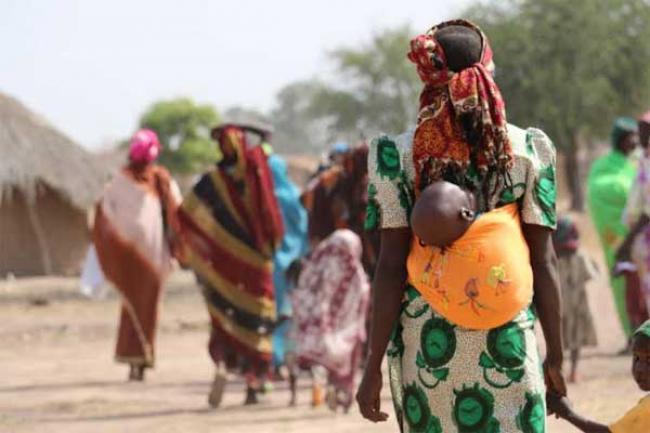Just Earth News 02 Mar 2016

Photo: OCHA/Gemma Cortes
The country's overall crop production in 2015 remained 54 per cent below the pre-crisis average, despite a 10 per cent increase from 2014 mostly due to a rise in cassava production, according to the latest Crop and Food Security Assessment Mission (CFSAM), conducted by the UN Food and Agriculture Organization (FAO) and the World Food Programme (WFP).
Cereal harvests continued to decline last year, with production 70 per cent lower than the pre-crisis average. Overall crop production in 2015 amounted to 838,671 tonnes, around one million tonnes less than the average before the crisis.
“The latest numbers are cause for concern not only because people skip meals and cut portions, but also because they opt for less nutritious foods that provide far less of the proteins and vitamins they need,” said FAO Country Representative Jean-Alexandre Scaglia in a press release.
“Some 75 per cent of people in CAR depend on agriculture, and with the planting season starting in less than two months, boosting agriculture now is crucial to revitalizing the economy and to stability in the country,” he added.
“The situation is dire. Half of the population faces hunger," said Bienvenu Djossa, WFP Country Director in CAR. "It is crucial that we continue helping the most vulnerable, who need emergency food assistance to survive. WFP and FAO are also working together to provide seeds to plant and food to eat during the planting period. This is the time when people need the maximum help possible as it is also the lean season, when people struggle to have enough food to eat before the next harvest.”
The heavy toll of insecurity
The report's findings further show how three years of insecurity – which has led to nearly one million people being uprooted from their homes – is still exerting a heavy toll on the people of the Central African Republic.
As an example, killings and looting brought the number of cattle down to almost half compared to pre-crisis levels, and the number of goats and sheep shrank by as much as 57 per cent. Damage to infrastructure and insecurity has also limited fishing activities, resulting in 40 per cent less fish caught in 2015 compared to 2012.
Meanwhile, disrupted markets and the latest escalation of violence in September 2015 saw food prices soar. Prices of protein-rich groundnut and wheat flour were 74 and 28 per cent higher than their pre-crisis levels, respectively. Prices of beef in October were almost double; fish was, on average, 70 per cent more expensive than before the crisis.
This has resulted in people seeing their purchasing power shrink by about one third in 2015, compared with 2012. Sixty-seven per cent of the people surveyed reported that they have less food compared to the previous year.
Response to the Crisis
FAO, WFP and their partners have been working together since the beginning of the unrest to mitigate its negative impacts on agricultural production and food security.
In 2015, FAO assisted some 170,900 households with seeds and tools, which have yielded about 40,000 tonnes of agricultural products and directly benefited about 854,500 people. This helped reduce families' dependence on humanitarian assistance and stabilize their incomes. WFP supported the operation by providing food rations to more than 65,000 farming families to prevent them from using their remaining seeds for food rather than planting and thus protect their capacity to produce in future seasons.
In addition to its work with FAO, WFP provided food through various activities including school meals and emergency food assistance to some 900,000 people.
Other FAO interventions in 2015 included large-scale livestock vaccination campaigns and support to the government's efforts to rebuild the country's seed supply capacity.
In addition, the Government of CAR has begun a strategic effort to revive the agricultural sector and facilitate the reintegration of vulnerable people by helping youth and family farms improve their capacity to produce.
In 2016, FAO and WFP, with the help of partners, will support these efforts through longer-term programmes that aim to save and strengthen livelihoods and build resilience. As part of the joint seeds protection programme, FAO aims to provide seeds and tools to 95,000 farming families while WFP plans to provide them with food rations.
FAO is appealing for $86 million to support 1.55 million people with inputs to produce crops and keep their livestock healthy, and strengthen the government's efforts to boost food security. WFP requires $89 million to respond to urgent needs of 1.4 million people until the end of July in CAR, and in neighbouring countries hosting CAR refugees. To date, about half of the required funding has been secured.